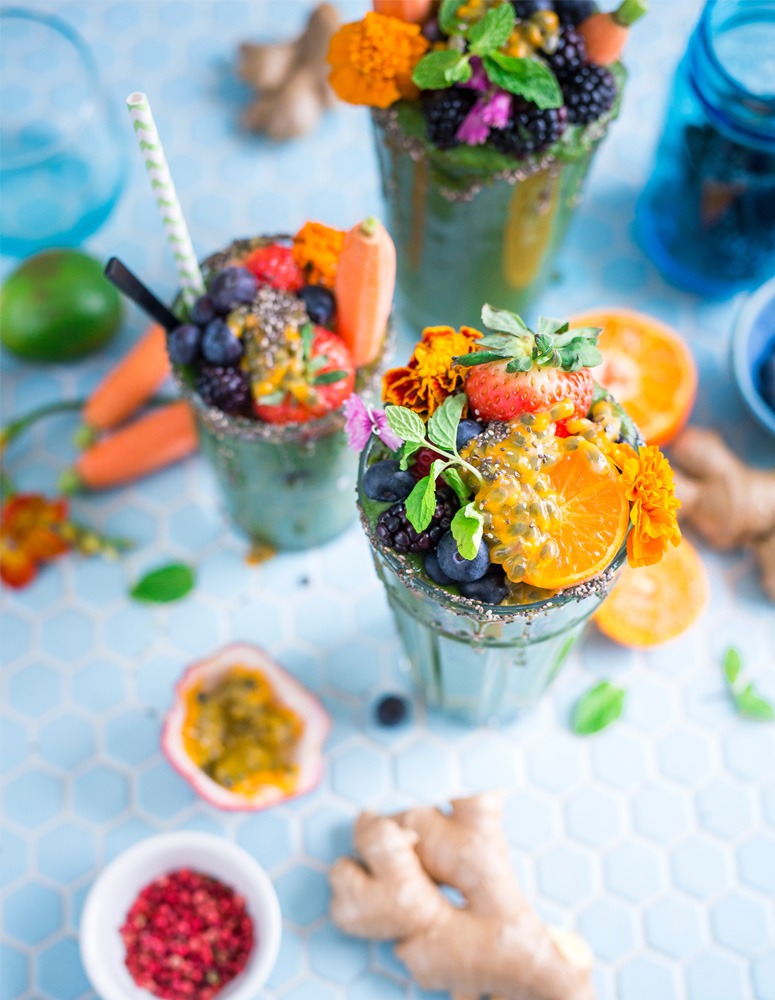How Your Diet Affects Your Mental Health
The adage “You are what you eat” clearly applies to your physical health: the cells of your body are literally produced from the nutrients you feed them.
It turns out that the same is also true for your mental health. People whose diet consists of too many processed carbohydrates and sugars, unhealthy fats, and excessive amounts of drugs like caffeine and alcohol, struggle more with depression than those who eat a healthy diet.
A 2018 review of the effect of 41 diets on mental health confirmed that an eating program rich in fresh fruits and vegetables, healthy fats like olive oil, Omega 3s, and nuts, unsweetened dairy products like plain yogurt and cheese, whole grains, beans, fish and poultry, and only moderate amounts of red meat and wine, correlated with the lowest incidence of clinical depression. Although this diet is often called the Mediterranean diet, friends and readers will also recognize it as the diet I recommend in my own Four Pillars of Modern Wellness.
One explanation of this diet’s positive effect on mental well-being is its anti-inflammatory benefits. Inflammation impedes the brain’s ability to repair itself—and depression can result. That’s why many antidepressant medications are also anti-inflammatories.
Another explanation is that the Mediterranean diet contributes to a healthy intestinal microbiome, which research suggests also affects mental health. Bacteria in the gastrointestinal tract activate neural pathways and central nervous system (CNS) signaling systems. Indeed, the microbiota-gut-brain axis may even offer new approaches for the prevention and treatment of mental illness, including anxiety and depression, through food. Already, nutrients such as the B vitamins are prescribed to reduce or prevent clinical depression.
Which foods are the BEST at preventing depression?
Antidepressant nutrients include folate, iron, long-chain omega-3 fatty acids (EPA and DHA), magnesium, potassium, selenium, thiamine, vitamin A, vitamin B6, vitamin B12, vitamin C, and zinc. In a study to identify which foods are highest in these nutrients, the leaders among animal-based foods were bivalves such as oysters and mussels, various other seafoods, and organ meats. The highest-scoring plant foods were dark, leafy greens, peppers, and cruciferous vegetables such as broccoli and cauliflower. The researchers emphasized, however, that the point is not to focus on single foods, but to include a wide variety of these healthy foods regularly in your diet.
Mood management
At the end of the day, many people turn to alcohol to lift their spirits. Although limited quantities of alcohol—particularly a glass of red wine—are fine for most people, alcohol is actually a depressant. Once the “buzz” wears off, it can leave you feeling deflated and make dealing with the next day doubly difficult.
Similarly, it’s common to turn to caffeine in the morning to counter the effects of alcohol the night before, setting up a self-perpetuating cycle of depressant-stimulant-depressant-stimulant. All of this can take a toll on your mental health—particularly the quality of your sleep. And a good night’s sleep is essential to mood regulation.
If you feel that you are becoming overly dependent upon the caffeine/cocktail regimen, try drug-free alternatives to unwind and feel your best. Socializing with friends in the evening—even by Zoom, or via a walk around the neighborhood—can substitute for a cocktail. You can create a ritual involving a cup of herbal tea—watching the sunset or unwinding with a friend—rather than a cocktail. Other alternatives include your favorite form of exercise—a post-work bike ride or walk on the beach—as well as yoga, meditation, or breath and mindfulness exercises. Similarly, a brisk exercise routine in the morning can get you going without caffeine. And daily reflective rituals—like my 11 Insight cards, journaling, or gratitude practice—can reduce anxiety and re-center yourself for the day ahead.
We are what we eat—mentally, as well as physically. So be good to yourself and consume a good mental health diet!
That’s Modern Wellness.
